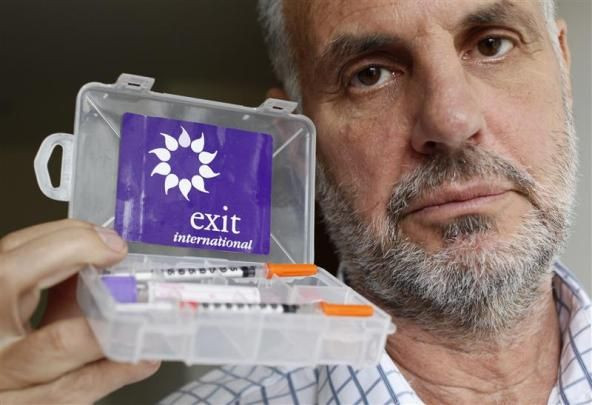Assisted Suicide Legal In New Mexico: New Ruling Makes It A 'Fundamental And Integral Right' For Terminally Ill Patients

A judge in New Mexico delivered a landmark ruling on Monday that will allow any doctor who assists in the death of a competent, terminally ill patient to do so without fear of prosecution. Second Judicial District Judge Nan Nash said the court could not envision a right “more fundamental, more private, or more integral to the liberty, safety, and happiness of a New Mexican than the right of a competent, terminally ill patient to choose aid in dying.”
Judge Nash’s Ruling
"If decisions made in the shadow of one's imminent death regarding how they and their loved ones will face that death are not fundamental and at the core of these constitutional guarantees, then what decisions are?" Nash added.
The judge's ruling was in response to a lawsuit filed back in December by the American Civil Liberties Union (ACLU) and Compassion & Choices, a group advocating physician-assisted suicide. In a two-day trial, Aja Riggs, a 49-year-old woman from Santa Fe with advanced uterine cancer, lobbied to allow her doctors, Dr. Katherine Morris and Dr. Aroop Mangalik, to prescribe medication that would end her life without being prosecuted under the assisted-suicide law — which classifies suicide as a fourth-degree felony.
Assisted-Suicide In New Mexico
“New Mexicans, both healthy and sick, now enjoy the comfort and peace of mind that come with knowing they can prevent a prolonged, agonized dying process at the end of life,” ACLU of New Mexico Legal Director Laura Schauer Ives said in a press release. “The court agreed that the New Mexico Constitution guarantees terminally ill patients they do not have to stay trapped in a dying process they find unbearable.”
Riggs, listed as the patient plaintiff in Morris v. New Mexico filed back in 2012, has undergone aggressive radiation and chemotherapy therapies and told Nash, "I don't want to suffer needlessly at the end." Although her cancer is currently in remission, Riggs understands the chances of its return. Morris has provided aid in dying to terminally ill patients in Oregon, where physician-assisted suicide is already legal.
New Mexico’s Attorney General’s office is currently reviewing Nash’s decision to decide if an appeal is necessary. If her ruling is finalized, New Mexico will join Oregon, Vermont, Washington, and Montana as the only states to legalize physician-assisted suicide. The New Mexico Psychological Association applauded Nash’s decision saying, “the practice of good professional psychology in New Mexico requires that the law … recognize that aid in dying is not a form of suicide.”



























